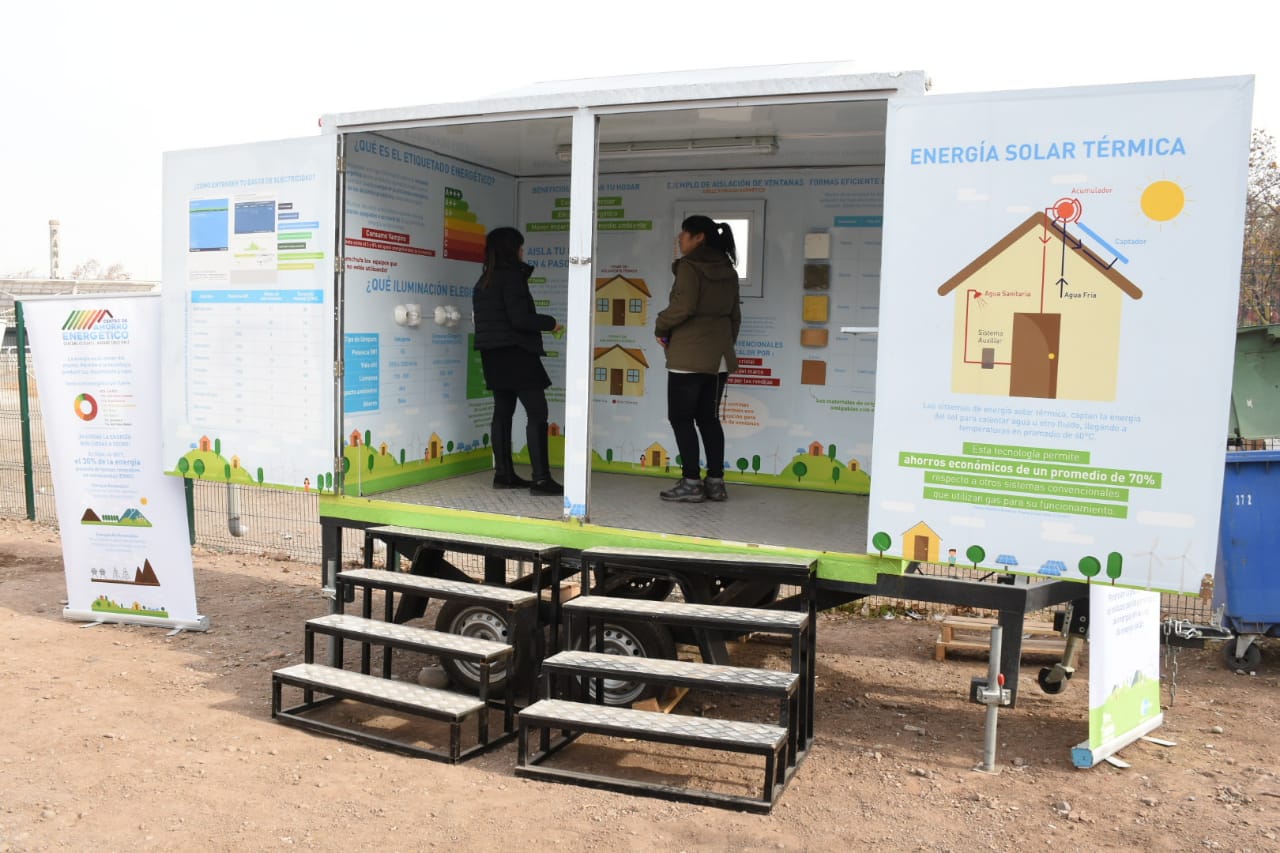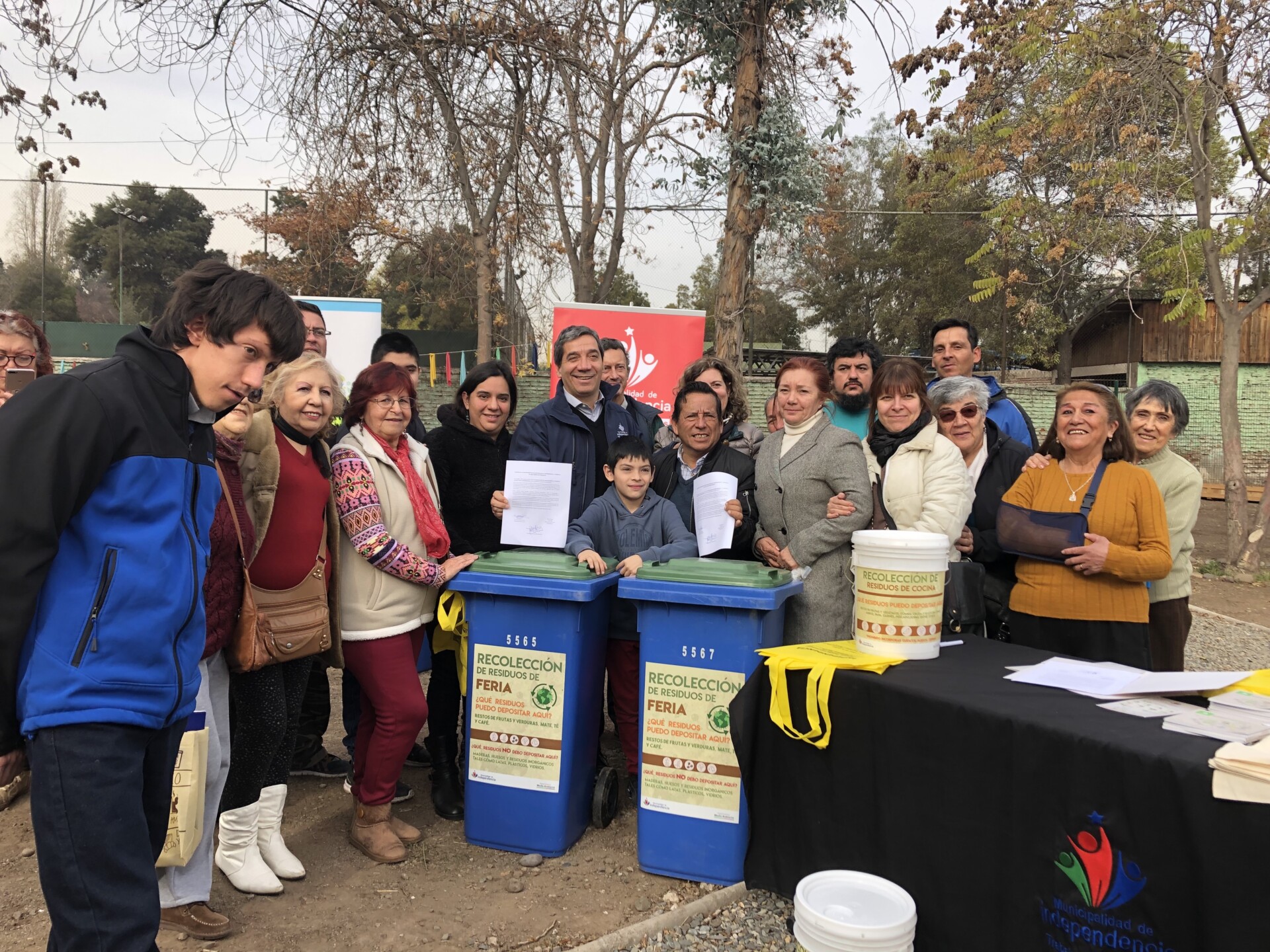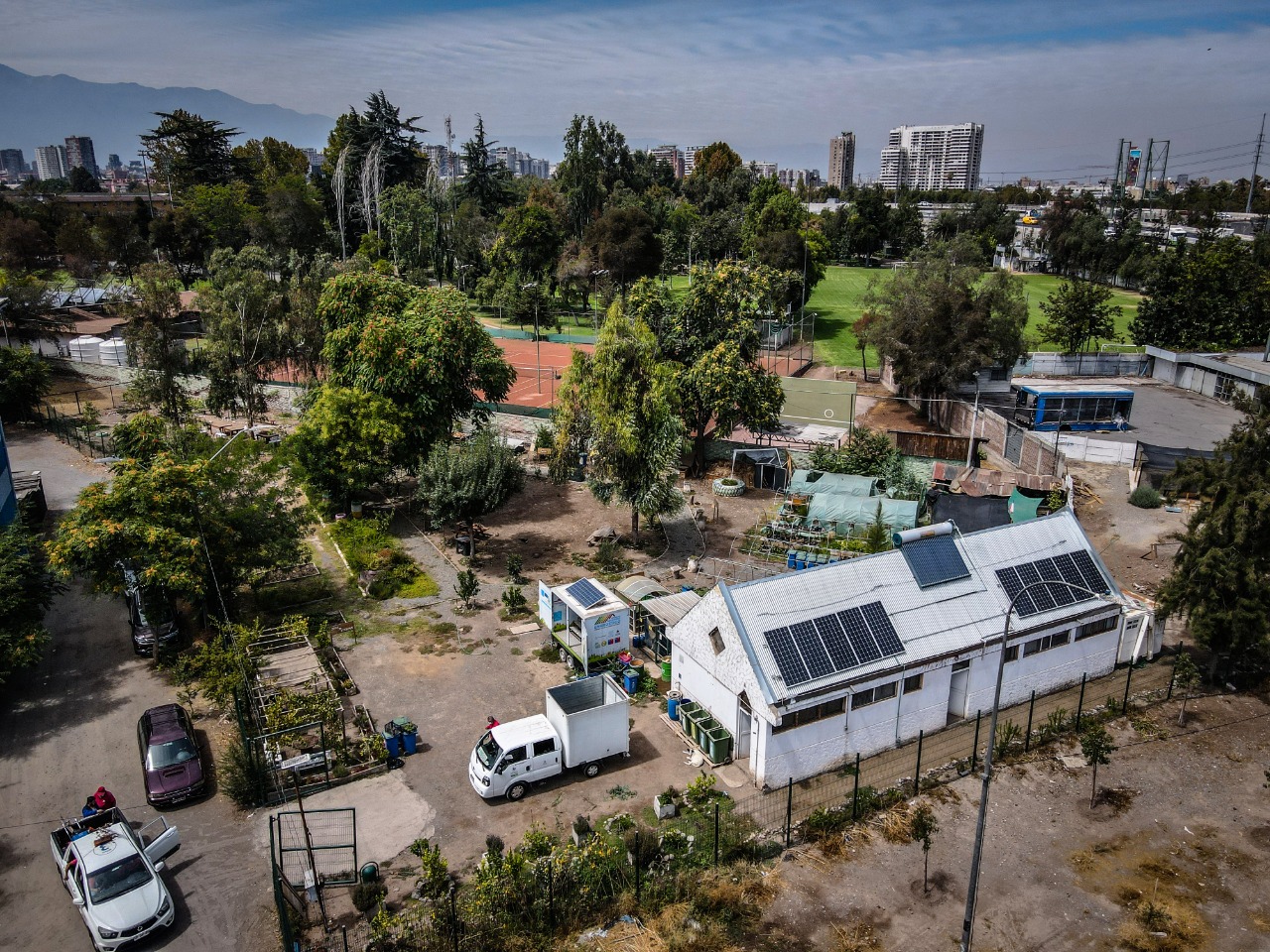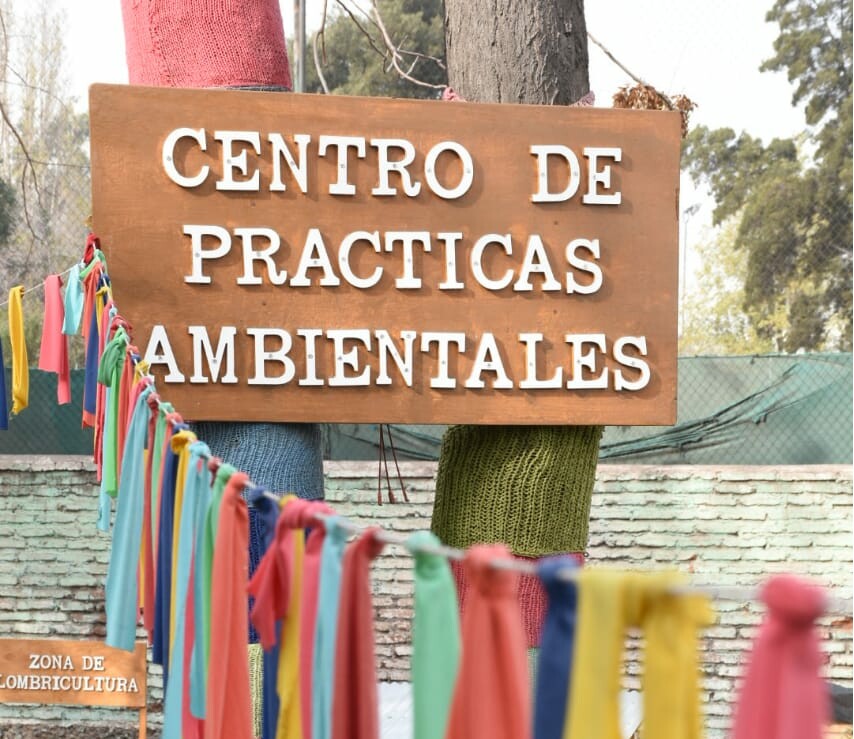The project aims to create a meeting place for the community, organisations and educational establishments to share experiences on environmental issues and learn from each other.
By loading the map you accept the privacy policy of Google.
This project established a Community Energy Centre (CEC) in Independencia, Chile, on a rubble dump that was previously unsafely connected to the grid. The project involved refurbishing deteriorated buildings and installing photovoltaic panels, solar thermal panels, and biodigesters.
Technology, Operations & Maintenance
Two biodigesters were installed to decompose organic food waste, producing biogas and digestate. The biogas replaces natural gas for cooking, lighting, heating, and electricity, while the digestate is used as a nutrient-rich organic fertiliser for gardening activities. Additionally, a solar photovoltaic system with 10 panels (335 Wp each) and a 3.00 kWp Solis Mini 4Gb inverter was installed, providing energy to the main electrical board. Also, a 300-liter solar thermal system was connected to the CEC's drinking water network. To ensure the viability and sustainability of these energy technologies, intensive training was provided to instructors and municipal staff, empowering them to manage the technologies and educate the local population, including students.Delivery Model & Financial Management
The municipality is responsible for all the associated financial arrangements and management of the center. However, the majority of daily activities in the CEC and the park are led by community initiatives. The CEC employs three methods of knowledge exchange for environmental education: guided tours and workshops for schools, seminars for municipalities and professionals, and practical training workshops for the community on renewable energy usage.Environmental Issues
The implementation of solar and biodigester technologies has brought positive changes to the CEC, providing access to energy and comfort while utilising renewable sources. The project has expanded to include urban/community/medicinal gardens, recycling and composting centers, and training sessions on energy, recycling, greenhouses, and agriculture. As a result, the population of Independencia has become more environmentally aware and capable of putting its new knowledge into practice.
Social Issues
The CEC welcomes and engages with schools, neighborhood councils, senior citizens' clubs, residents, and government officials, offering diverse on-site workshops. The Red Genera worker cooperative conducts solar and thermo panel training and certification at the CEC. Recreational spaces facilitate the interaction and learning between neighbours. Greenhouses and personal gardens are available for schools and interested individuals, and the local community receives training on CEC usage and renewable technologies. The project has fostered strong citizen engagement and a sense of community, with neighbours actively contributing to improving the living conditions within the district.
Results & Impact
The CEC operates on energy provided by photovoltaic panels. Solar thermal panels provide heated water for personal hygiene, and biogas is used for training and food preparation. The digestate is used mainly for composting. The Center includes facilities such as toilets, an office area, and a training room. These are complemented by urban gardens, eco-technologies, biological corridors, greenhouses, vermiculture, green points and a mobile energy center. The CEC serves as an open community space where environmental education is embedded in all its activities. Soon, other projects are expected to complete the "Park for Sustainability," of which the Community Energy Centre is a part. These include an urban forest following the Miyawaki method and expanding the Juan Antonio Ríos Clean Point, which is currently being expanded with the installation of a waste collection centre.Replicability
The project has proven to be successful in the creation of communal spaces that cater to both recreational needs and provide opportunities for the community to learn and experiment with green technologies and environmental practices. This success holds potential for replication in other municipalities facing similar environmental challenges. The project highlights the importance of collaboration between municipal administration, active neighbours, and local initiatives. Dissemination activities, such as distributing flyers and participating in seminars and conferences, have been conducted to expand the project's impact.Lessons Learned
The project faces challenges in administration, including the need for efficient bureaucratic processes and agreement between stakeholders to prevent conflicts with other plans. Involving diverse actors early on, such as citizens, social organisations, businesses, and different municipal departments, promotes project continuity and sustainability. Establishing a network of strategic allies with technical knowledge is also crucial for knowledge sharing.You can find the detailed case study for download at the top of the page!
Project Summary SO_P030


